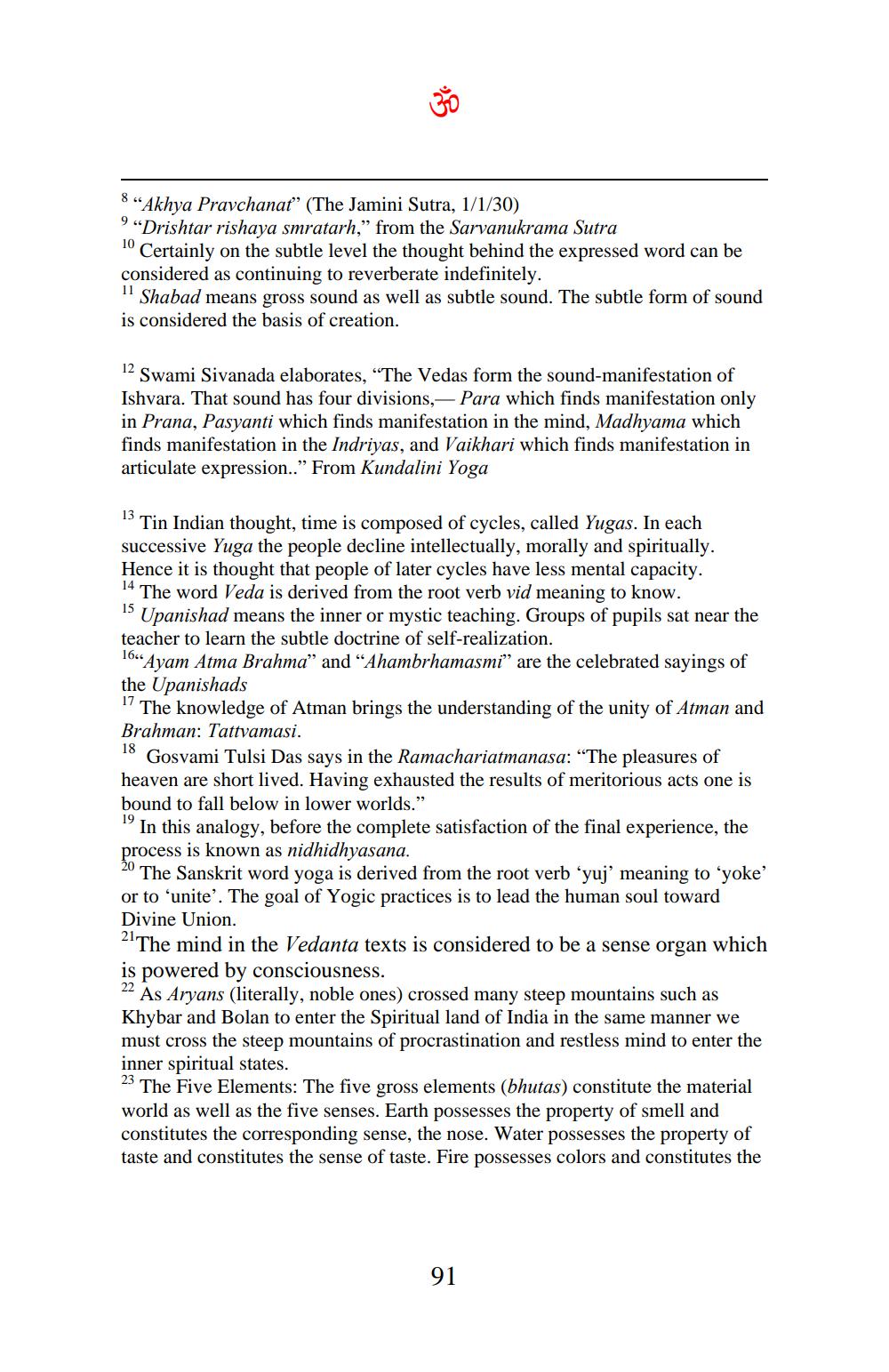________________
8 “Akhya Pravchanat” (The Jamini Sutra, 1/1/30) 9 "Drishtar rishaya smratarh," from the Sarvanukrama Sutra 10 Certainly on the subtle level the thought behind the expressed word can be considered as continuing to reverberate indefinitely. "Shabad means gross sound as well as subtle sound. The subtle form of sound is considered the basis of creation.
12 Swami Sivanada elaborates, “The Vedas form the sound-manifestation of Ishvara. That sound has four divisions,— Para which finds manifestation only in Prana, Pasyanti which finds manifestation in the mind, Madhyama which finds manifestation in the Indriyas, and Vaikhari which finds manifestation in articulate expression..” From Kundalini Yoga
1 Tin Indian thought, time is composed of cycles, called Yugas. In each successive Yuga the people decline intellectually, morally and spiritually. Hence it is thought that people of later cycles have less mental capacity. 14 The word Veda is derived from the root verb vid meaning to know. l'Upanishad means the inner or mystic teaching. Groups of pupils sat near the teacher to learn the subtle doctrine of self-realization. 16" Ayam Atma Brahma” and “Ahambrhamasmi" are the celebrated sayings of the Upanishads 17 The knowledge of Atman brings the understanding of the unity of Atman and Brahman: Tattvamasi. 18 Gosvami Tulsi Das says in the Ramachariatmanasa: "The pleasures of heaven are short lived. Having exhausted the results of meritorious acts one is bound to fall below in lower worlds."
In this analogy, before the complete satisfaction of the final experience, the process is known as nidhidhyasana. 20 The Sanskrit word yoga is derived from the root verb 'yuj' meaning to 'yoke' or to 'unite'. The goal of Yogic practices is to lead the human soul toward Divine Union. - The mind in the Vedanta texts is considered to be a sense organ which is powered by consciousness. 22 As Aryans (literally, noble ones) crossed many steep mountains such as Khybar and Bolan to enter the Spiritual land of India in the same manner we must cross the steep mountains of procrastination and restless mind to enter the inner spiritual states. 23 The Five Elements: The five gross elements (bhutas) constitute the material world as well as the five senses. Earth possesses the property of smell and constitutes the corresponding sense, the nose. Water possesses the property of taste and constitutes the sense of taste. Fire possesses colors and constitutes the
91




